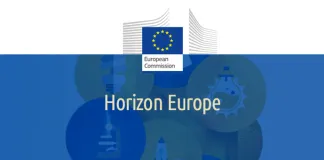PLASTICE
Relevant project information
Dates
Project website
Role of CIRCE
Grant agreement number
Funded by

Description and objectives
The overall PLASTICE concept demonstrates in real value chains the advances in recovery technologies, contributing to the development of standards and criteria. It comprehensively addresses the plastics and textile value chains, seeking to increase recyclability and reduce waste generation, thus creating circular value chains by design.
Three plastics valorization routes and four technologies are developed and applied in real demonstration sites. These technologies cover different types of post-consumer waste mixtures, obtaining sustainable raw materials for the production of new plastics and high value-added products. This approach aims to facilitate the replication of results in EU industry, in line with PLASTICE's exploitation strategy.
Value proposition
- Circular Economy and Ecodesign Guides: We provide specialized guides for the identification of circular economy and ecodesign opportunities in the plastics and textile sector, facilitating the transition towards more sustainable practices.
- In-depth knowledge of recycling in the textile sector: We have detailed knowledge of recycling needs and practices in the textile sector, enabling specific and efficient solutions.
- Expertise in Gasification Technology for Plastics Recycling: We provide expertise in gasification technology applied to plastics recycling, offering innovative and sustainable solutions.
- Expertise in Plastics and Textile Recycling Logistics: We have specialized knowledge on the logistics of plastic and textile waste recycling, ensuring efficient and effective processes.
- Semi-Dynamic LCA Tool: We developed an advanced semi-dynamic Life Cycle Assessment (LCA) tool to assess and continuously improve sustainability in the life cycle of products and processes.
- Laboratory Expansion with Microwave Assisted Pyrolysis Pilot Unit: We expanded the Alfajarín laboratories with a microwave assisted pyrolysis pilot unit (50 L), increasing the capacity to address new projects and challenges with state-of-the-art technology.
- Machine Learning Models for System/Reactor Design Optimization: We implemented machine learning models to optimize system/reactor design based on FEM simulation results, improving efficiency and performance.
- Machine Learning Models for Recycling Plant Optimization: We develop machine learning models to optimize the recycling plant, maximizing operational efficiency and reducing environmental impacts.
- Vision Separation Models with Machine Vision: We implement vision separation models using machine vision techniques, improving accuracy and efficiency in the separation of materials in the recycling process.
Project partners
CIRCE
URBASER, ATI, UVA, COGERSA, RINA CSM, CRN, AGOVINO PRT, CHEMICAL EMPOWERING, TOTAL R&T, ALBEA, CTB, TCKT, DKW, AUSTRO, KORTWKS, SUN, CTIC, ICCS, RINA-C, JB2B, POLYMERIS, ICONS


